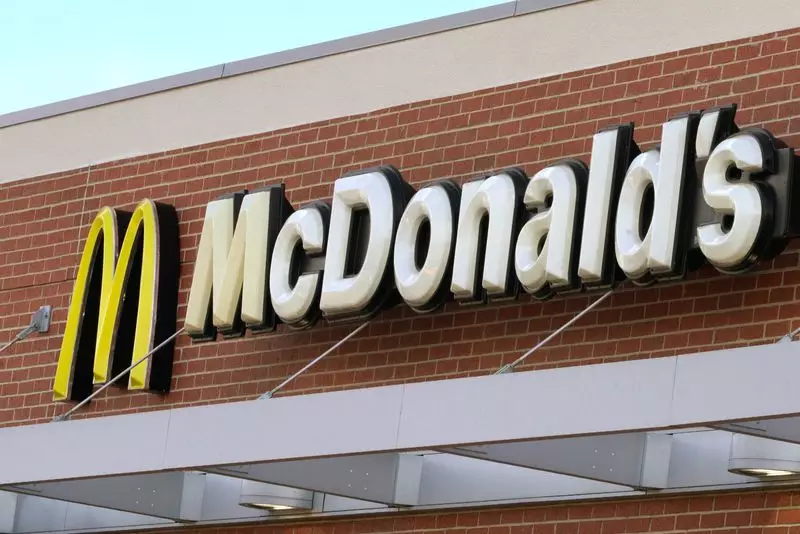In a jarring turn of events, McDonald’s is grappling with an E. coli outbreak that has been linked to its popular Quarter Pounder burgers, resulting in one fatality and nearly fifty reported illnesses across multiple states. This incident has sent shockwaves through the fast-food giant, prompting the company to act swiftly in an attempt to mitigate damage and restore public confidence. With the Centers for Disease Control and Prevention (CDC) now investigating the situation, questions arise about the broader implications for the fast-food industry and consumer habits concerning food safety.
In response to the outbreak, McDonald’s is not merely sitting idle; it has proactively pulled Quarter Pounders from its menus in approximately one-fifth of its 14,000 U.S. locations. This decisive maneuver underscores the company’s urgent need to protect public health and limit further cases. The CDC’s spokesman, Tom Skinner, has indicated that an escalation in cases is a likely scenario, thereby intensifying the pressure on McDonald’s to effectively manage the crisis.
The outbreak has primarily impacted the Western and Midwestern regions of the United States, with a notable number of individuals hospitalized due to severe complications from E. coli. With the stakes this high, McDonald’s USA President, Joe Erlinger, emphasized the importance of rebuilding trust with consumers. The strategy for regaining this trust involves transparency and a commitment to rigorous food safety measures.
A central component of the investigation is identifying the source of contamination. Both the CDC and McDonald’s are focusing their efforts on scrutinizing the supply chain, specifically looking into slivered onions and beef patties, which have been flagged as potential vectors for the E. coli strain involved in this outbreak. The gravity of the situation is amplified by historical precedents; past E. coli outbreaks, such as those involving Chipotle and Jack in the Box, have had devastating consequences for company reputations and financial performance.
The current outbreak points towards the same E. coli O157:H7 strain responsible for a tragic incident in 1993 linked to Jack in the Box, which resulted in multiple fatalities and resulted in stringent food safety legislation. This historical context places additional pressure on McDonald’s, as consumers brace themselves for the ramifications of yet another foodborne illness crisis.
From a financial perspective, the immediate reaction seen in McDonald’s stock is alarming. Earlier reports indicated a steep decline of nearly 4.9% within hours of the news breaking, as investors reacted to the uncertainty surrounding the company’s future earnings and market position. Analysts are quick to draw parallels with previous outbreaks at other fast-food chains, which have had long-lasting effects on sales and consumer demand.
Analysts indicate that McDonald’s might face struggles in maintaining fourth-quarter sales, although it is still too soon to gauge the long-term implications of this specific outbreak. The swift actions taken to identify potential sources of contamination and replenish supplies could be crucial in averting a scenario analogous to the crises that befell Chipotle and Jack in the Box.
The clock is ticking for McDonald’s to not only contain the current situation but also to emerge stronger and more reliable in the eyes of consumers. To navigate this rough patch, it would be prudent for McDonald’s to enhance its food safety protocols, increase transparency in communications, and reaffirm its commitment to serving safe food. Industry analysts are abstaining from making long-term projections for McDonald’s until the outbreak is fully under control and a clearer picture emerges regarding its impact.
Ultimately, whether this incident serves as a mere hiccup in an otherwise robust fast-food empire or signals a deeper issue remains to be seen. However, as consumers grow increasingly conscious of food safety, the onus is on McDonald’s to adapt and solidify its reputation as a trustworthy institution in the fast-food landscape. The company must recognize that in today’s age, the line between crisis and opportunity can blur quickly—key to survival is not just response time, but a demonstrated commitment to consumer welfare.

